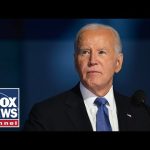President Donald Trump’s bold move to impose sweeping tariffs on imports has reignited debates over America’s trade policies and their long-term implications for the nation’s economy and sovereignty. Declaring a national emergency to address the persistent trade deficit, Trump introduced a 10% tariff on all imports, with higher rates targeting countries like China and Canada. This policy, described as the most significant protectionist measure since the 1930s, reflects a decisive shift away from decades of globalization and free trade that many conservatives argue have hollowed out American industries.
Stephen Miller, Deputy Chief of Staff at the White House, has emerged as a key advocate for these tariffs, framing them as essential to restoring America’s manufacturing base and economic independence. Miller has criticized globalization for enriching foreign nations at the expense of American workers, likening it to a redistribution of wealth that has weakened the country’s industrial might. He highlighted how industries like steel, once symbols of American strength, have been decimated by unfair trade practices and an overreliance on imports. Miller’s argument resonates with many who believe that protecting domestic industries is not just an economic necessity but a matter of national security.
The administration’s approach has not been without controversy. The tariffs have rattled global markets, with significant stock market declines amid fears of inflation and recession. Critics within Congress, including some Republicans, have expressed concerns about the economic fallout and potential retaliation from trading partners. However, many GOP lawmakers have chosen to support Trump’s vision, emphasizing the need to prioritize American workers over foreign interests. While some dissent exists, the broader Republican stance underscores a willingness to endure short-term economic pain for long-term national gain.
Trump’s strategy also draws inspiration from historical precedents. Tariffs were a cornerstone of America’s early economic policy, championed by figures like Alexander Hamilton to protect fledgling industries and generate federal revenue. By revisiting these principles, Trump aims to reestablish America as a manufacturing powerhouse capable of producing critical goods domestically. This vision aligns with conservative values of self-reliance and limited dependence on foreign nations, particularly adversaries like China. As Secretary of State Marco Rubio aptly stated, resetting the global trade order is essential for America to regain its role as a producer rather than merely a consumer.
While the road ahead is uncertain, Trump’s tariffs represent more than just an economic policy—they are a statement of intent to prioritize American sovereignty and strength in an increasingly competitive global landscape. By challenging decades of failed trade policies, the administration seeks to secure economic prosperity and the preservation of the American Dream for future generations. Whether Congress and the public rally behind this vision will ultimately determine its success in reshaping America’s economic destiny.




